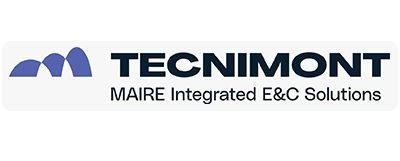Initiatives
Awareness Generation and Training programmes
Community
Composting Bins
The Material Collection Facility - MCF
Kachra
Mobile App
Stakeholder Engagement, awareness generation and training programme

Educational Workshops and Training
A series of workshops and seminars have been conducted, targeting residents of all ages in Bihat Nagar Parishad. These sessions are designed to provide comprehensive information on the significance of waste segregation and the environmental impact of improper waste disposal. Experts in waste management, along with environmental educators, engage with the community, using interactive presentations and demonstrations to illustrate the lifecycle of waste and the benefits of recycling.

School Involvement and Competitions
Recognizing the influential role of schools in shaping young minds, the project team collaborated with local educational institutions to integrate waste management topics with competitions such as painting and speech contests were organized to encourage students to express their understanding and perspectives on waste management creatively. For instance, events held at Middle School Bihat saw enthusiastic participation where students showcased their talents while absorbing valuable lessons on environmental supervision. 12 Schools where participated with more than 300 students involvement in this campaign and competition.

Focus Group Discussions with Sanitation Workers
To tackle the challenges in solid waste management (SWM), focus group discussions were conducted with sanitation workers. These sessions offered a space for workers to express their experiences, challenges, and ideas for improving waste management practices. By directly involving those who are essential to the SWM process, we gained valuable insights that will guide the development of more effective strategies and support mechanisms. This approach not only amplifies the voices of sanitation workers but also strengthens their role in enhancing SWM efforts.

Engagement with Local Leaders and Influencers
Local leaders and influencers are pivotal in shaping public opinion and behaviors. Throughout the project, interactions and consultations with local ward councilors, leaders, and influencers have been essential to our strategy. The project team engaged these individuals to secure their endorsement and active participation in promoting waste management practices. By involving respected community members, the project ensures that the sustainability message is more readily received and acted upon. These interactions have fostered trust, identified gaps, and addressed issues, ensuring the project aligns effectively with community needs. Leveraging the influence of these figures has boosted participation and commitment to the project’s goals.
The project’s objectives include promoting the segregation of waste at the source, setting up community-level composting centers for organic waste, and creating waste-to-wealth centers to process and recycle inorganic waste. Additionally, the project prioritizes strengthening local capacity by training youth and engaging municipal workers in sustainable waste management practices.

Feedback and Improvement Mechanism
To gauge the effectiveness of the awareness campaigns and adapt strategies as needed, the project established mechanisms for collecting feedback from the community. Surveys and focus groups provided insights into how the information is being received and acted upon, allowing for continuous improvement of the campaign strategies.
These comprehensive awareness generation and EIC activities have collectively contributed to a gradual shift in community behaviors towards waste management. By educating, engaging, and empowering the residents of Bihat Nagar Parishad, the project lays a solid foundation for sustainable environmental practices that extend beyond the project’s duration, leading to long-term benefits for the community and the environment.

Situation assessment study
The situation assessment study on solid waste management in Bihat Nagar Parishad reveals a complex landscape marked by both commendable efforts and pressing challenges. The Nagar Parishad sanitation workers promote some household waste segregation, with the new technical interventions and new methods they can improve this waste management, enhance waste segregation efforts, and address shortcomings in infrastructure and service delivery. This study underscores the imperative for targeted interventions and systemic improvements to achieve effective solid waste management in the Bihat Nagar Parishad.

Waste Hotspot mapping
Three individuals, comprising two Research Associates and a volunteer, underwent training on identifying solid waste hotspots. They conducted transect walks along village roads in Bihat Nagar parishad, using the ODK app to record and geotag major solid waste dumps. The team identified and mapped a total of 17 solid waste hotspots, noting details such as their locations, types of waste, and other pertinent information.

Solid Waste Hot-spot Survey
A survey conducted in Bihat Nagar Parishad identified waste hotspots across its wards. Wards 22 and 25 were found to have the highest number of hotspots, with ward 25 hosting the largest solid waste dump of approximately 2000 sqm. The predominant types of waste found include plastics (bottles, bags), wrappers, and paper waste, with cardboard waste present in 83.3% of hotspots. Glass waste was observed in 27.8% of hotspots, highlighting inefficiencies in waste collection. Kitchen waste and sanitary waste were found in 72.2% and 77.8% of hotspots respectively, posing potential groundwater contamination risks. Medical waste was limited to wards 22 and 23, while septic tank waste was isolated to ward 22, requiring urgent attention due to its health risks. Other miscellaneous waste items, such as thermocol plates and old school bags, were discovered in approximately 38.9% of the hotspots.

Consultation with Scrap dealers for forward linkages
During consultation with scrap dealers spoke with the owner’s of the scrap dealing shop in Ward 25 of Bihat Nagar Parishad. They handles approximately 100- 200 kg of scrap daily, including iron, tin, and aluminium, but excluding single-layer plastic. Most of the scrap originates from nearby households, collected by local vendors and residents. There are 9 local scrap collecting vendors who deposit their collections at this location. The collected scrap is then transported to Delhi for further processing. The current buying rates at their shop are 31 INR/kg for iron, 22 INR/kg for tin, and 120 INR/kg for aluminium. This shop plays a crucial role in the local recycling ecosystem, serving as a central hub for scrap collection and onward distribution to larger markets.

Field Visit to Alleppey
Akash Ganga team from Bihat, undertook a field visit to Alappuzha to study its renowned waste management model. Alappuzha’s success lies in its emphasis on source segregation, community engagement, and decentralised waste processing. Residents are actively involved in segregating waste at the source, which is then managed at the ward level through composting and recycling initiatives. The city also utilises technology for efficient waste collection and monitoring. Continuous public awareness campaigns have further reinforced these practices. Akash Ganga’s visit aimed to learn from Alappuzha’s model and potentially implement similar strategies back in Bihat, tailored to their own community’s needs and resources.
Community Composting Bins
Aerobic Bin: A Sustainable Solution for Organic Waste Management
Effective organic waste management is crucial for addressing the waste crisis in India’s rapidly growing urban areas. Traditional methods of dumping waste in landfills pose significant environmental and health risks. While recycling addresses non-biodegradable waste, managing biodegradable waste remains a pressing issue. The Aerobic Bin, or “Aerobin,” offers a practical and efficient solution for this challenge.
Key Benefits of Aerobic Bins
Versatile Implementation
Suitable for use by Corporations, Municipalities, Panchayats, institutions, and residential associations.
Environmental Impact
Transforms biodegradable waste, which makes up 70% of total waste, into valuable compost.
Reduces the need for landfill space and mitigates environmental hazards.
Compost Production
Converts organic waste into nutrient-rich compost, ideal for soil conditioning in farming and gardening.
Odor and Pathogen Control
Properly maintained aerobic bins do not emit foul odors.
The heat generated during the composting process effectively kills harmful pathogens, ensuring a safe and hygienic process.
Community and Health Benefits
By eliminating the need for waste dumping in open yards, aerobic bins help reduce the environmental footprint and enhance public health.
Promotes sustainable waste management practices within communities.
Implementing Aerobic Bins at various levels—from local governance bodies to households—can significantly improve waste management efficiency and contribute to a cleaner, healthier environment. By converting organic waste into useful compost, the Aerobic Bin not only addresses waste disposal concerns but also supports agricultural productivity and urban gardening initiatives.
The Material Collection Facility - MCF
The Material Collection Facility (MCF) serves as a critical hub for managing non-biodegradable waste collected through our door-to-door services. At the MCF, non-biodegradable waste is temporarily stored and meticulously sorted into various categories, such as paper, plastic, bottles, and packaging materials.
How It Works
Collection
Non-biodegradable waste is gathered from households through our efficient door-to-door collection system.
Segregation
Upon arrival at the MCF, waste undergoes secondary segregation, where it is sorted into distinct categories like paper, plastic, bottles, and packaging materials.
Processing
Once sorted, the separated materials are either sold to recyclers or transported to Resource Recovery Facilities (RRFs) for further processing.
By efficiently managing and segregating waste, the MCF plays a vital role in reducing environmental impact and promoting sustainable waste management practices.


Kachra Mobile App
Introducing ‘Kachara’: The Garbage Flow Monitoring Application
In our ongoing effort to enhance and streamline waste management, we are excited to introduce ‘Kachara’, a state-of-the-art smart garbage monitoring application. This innovative app is designed to track the movement of waste from households to processing centres, ensuring an efficient and transparent waste management process.
Key Benefits of Kachra Mobile App
Digitized Scheduling
Automates the scheduling of waste collection to ensure timely and efficient waste movement from households to treatment facilities.
Geotagging & Mapping
Utilises geotagging to provide a detailed map of cooperative and non-cooperative households
Enhances route planning for waste collection teams, ensuring no household is missed.
Transparency & Communication
Fosters transparency among households, waste workers, and the Urban Local Body (ULB).
Provides real-time updates on waste collection status and schedules.
Progress Tracking Dashboard
Features a comprehensive dashboard that allows the municipality to monitor progress and identify gaps in achieving 100% waste management.
Facilitates data-driven decision-making to improve waste management strategies.
Community Reporting & Requests
Empowers households to report public dumping hotspots directly through the app.
Allows residents to request additional waste management services during events or special occasions.
By deploying ‘Kachara’, we aim to revolutionize waste management practices, making them more efficient, accountable, and responsive to community needs. This smart application not only ensures the seamless movement of waste but also actively engages citizens in maintaining a cleaner and healthier environment.
Impact
- Improved Waste Management: Enhanced efficiency in waste collection, segregation, and disposal.
- Environmental Protection: Reduced pollution of the Ganga River and other natural resources.
- Agricultural Benefits: Production of compost as a soil conditioner, reducing dependency on chemical fertilisers.
- Circular Economy: Recycling of non-biodegradable materials, ensuring waste re-enters the value chain.
- Transparency and Accountability: Monitoring tools like a mobile app and dashboard for tracking waste management activities.
- Reduced Municipal Burden: More effective and sustainable waste management practices.
- Enhanced Public Awareness: Education and awareness campaigns to promote responsible waste management.
- Health and Hygiene: Improved sanitation and reduced health risks from waste-related issues.
- Economic Opportunities: Creation of jobs and economic activities related to waste management and recycling.

